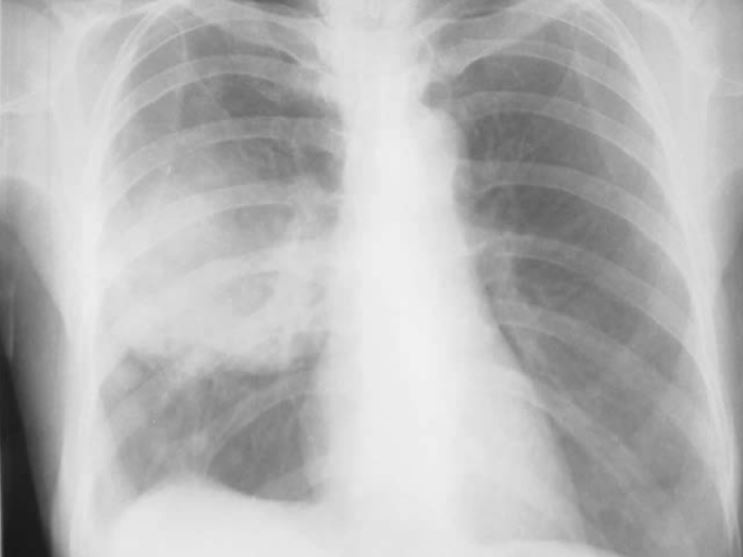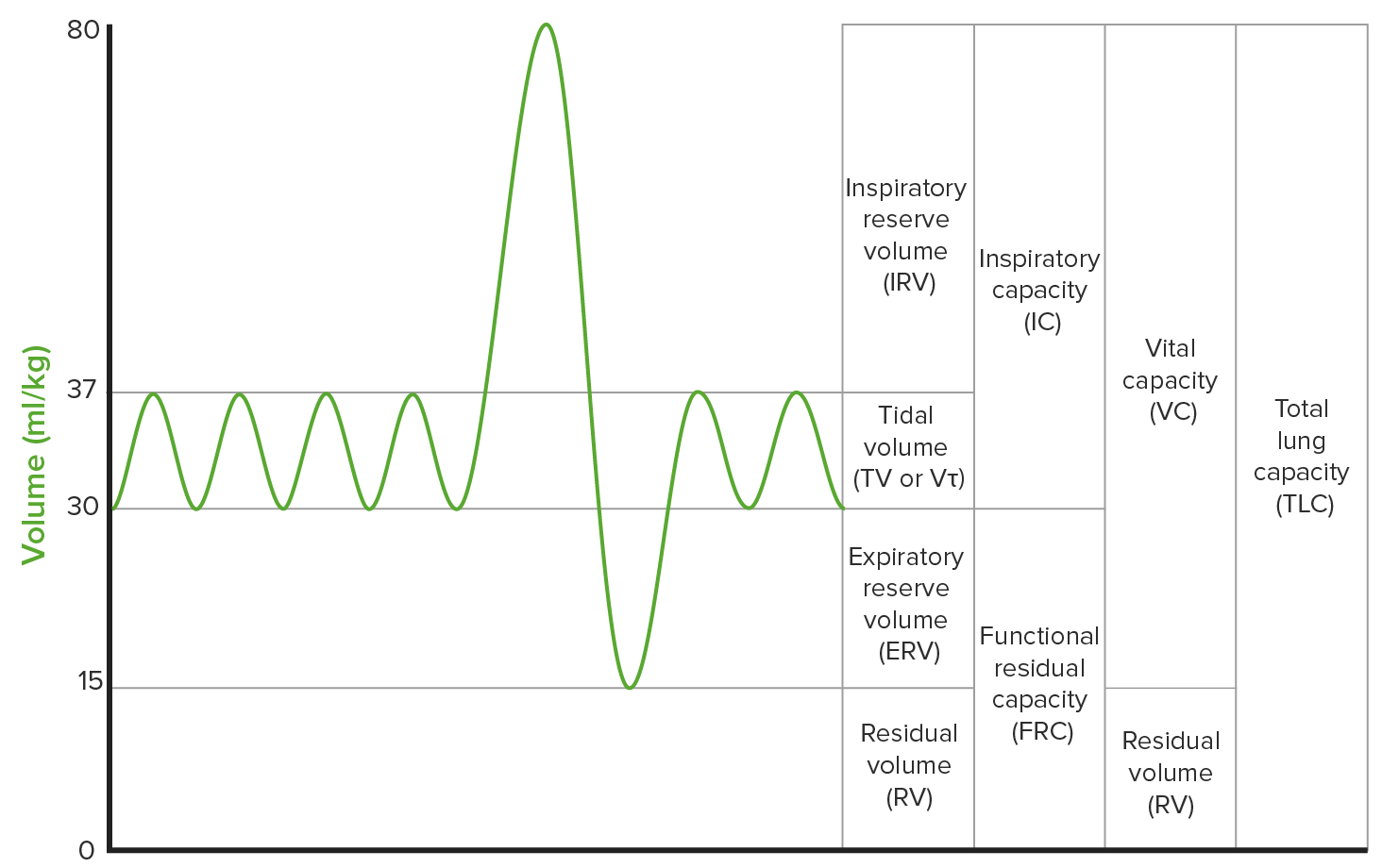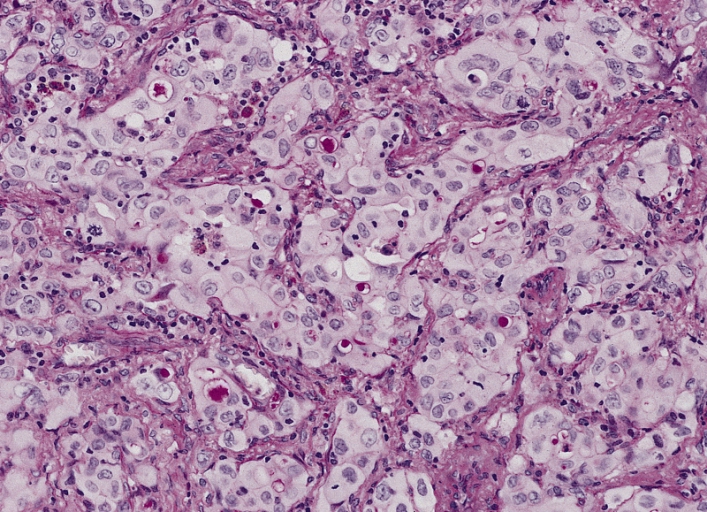Playlist
Show Playlist
Hide Playlist
Lung Cancer and Tumors: Pathogenesis
-
Slides 07 LungCancer Tumors and Metastases Neoplasias RespiratoryAdvanced.pdf
-
Download Lecture Overview
00:00 So how do you get lung cancer and the basic answer is that you smoke cigarettes. 00:06 The exposure of cigarette smoke over time will cause respiratory epithelium to acquire multiple mutations and the effects of these on tumour suppressor genes and oncogenes eventually end up with a cell which is unable to be controlled by the numeral physiological mechanisms and immune surveillance of abnormal cells and will replicate and cause a cancer. 90% of this cases are due to cigarette smoking. There are other factors which also will influence the development of lung cancer. 00:34 For example, we know that if we have been exposed to asbestos in combination with smoking cigarettes that become synergistic with increasing your chance of lung cancer. We also know exposure to radioactive gases such as Radon could increase your chance of lung cancer and in fact in Camborne in the UK, the houses built there have to have a radon prevention membrane built underneath them to prevent the radon gas which is very common in Camborne seeping into the house because of this risk of increase of cancer. In addition, things are radiotherapy to lungs, family history of cancer, various chemical exposures apparently diesel exhaust may increase your chance of cancer. They will all contribute towards a chance of getting cancer. 01:15 An important point is that if you have chronic obstructive pulmonary disease, i.e. smoking rated lung damage. The chance of lung cancer is increased over and above just the effects of smoking itself. So there is something about the inflammation is present in patients with COPD which makes lung cancer more likely to develop compared to smokers who don’t develop COPD. But another important point, is that not all of lung cancer is due to smoking. About 10% occur in non-smokers and there is a specific type of disease which is adenocarcinoma which tends to resent in non-smoking middle aged woman. What happens is that if somebody will present with a bit of cough, a chest x-ray will be done and it will show multiple metastases of adenocarcinoma througout both lungs and characteristic to that would be a non-smoking population. So in general, how would you recognize somebody with lung cancer? Well, they tend to be an elderly person like 75, the male slightly more predominant than female. But actually in females this lung cancer is still very common as we said it's the commonest fatal cancer in females, much more common than breast cancer as a cause of death in women. So somebody who smokes, who is aged over 50 years, has a lung mass on the x-ray you must exclude cancer as the cause. If they have systemic symptoms which might suggest they have a cancer and those are mainly weight loss, looking cachexic, no appetite, fatigue, and general malaise feeling ill and if they have specific symptoms suggestive of a cancer such as cough or haemoptysis, then your suspicions are even more higher. 03:02 So as we see in this, there is an x-ray where somebody has a lesion on the top of their left lung and a smoke. You must think that lung cancer is the potential cause for that in this situations and may not be the cause but it needs to be excluded. 03:17 The major problem with the clinical presentation of lung cancer is that the symptoms the patients present with are very, very variable. As a consequence they can present to any specialty. 03:28 Not just chest physicians, they can present to neurologists, to bone doctors etc etc. and as a consequence everyone who deals with patients who are in the age range which may have cancer, needs to be aware of lung cancer's potential diagnosis.
About the Lecture
The lecture Lung Cancer and Tumors: Pathogenesis by Jeremy Brown, PhD, MRCP(UK), MBBS is from the course Lung Cancer.
Included Quiz Questions
Which of the following tumor suppressor and oncogenes is NOT associated with lung cancer?
- APC
- p53
- K-ras
- EGFR
- MET
Which of the following is a known risk factor for lung cancer?
- Radon gas exposure
- Helium gas exposure
- Nitrous oxide gas exposure
- Formaldehyde gas exposure
- Hydrogen gas exposure
Customer reviews
5,0 of 5 stars
| 5 Stars |
|
1 |
| 4 Stars |
|
0 |
| 3 Stars |
|
0 |
| 2 Stars |
|
0 |
| 1 Star |
|
0 |
who doesn't love a great british accent?! I wish everyone had a british accent. Also very knowledgable. Thanks so much for your contribution as well as all of the other contributors. I am thoroughly pleased.






